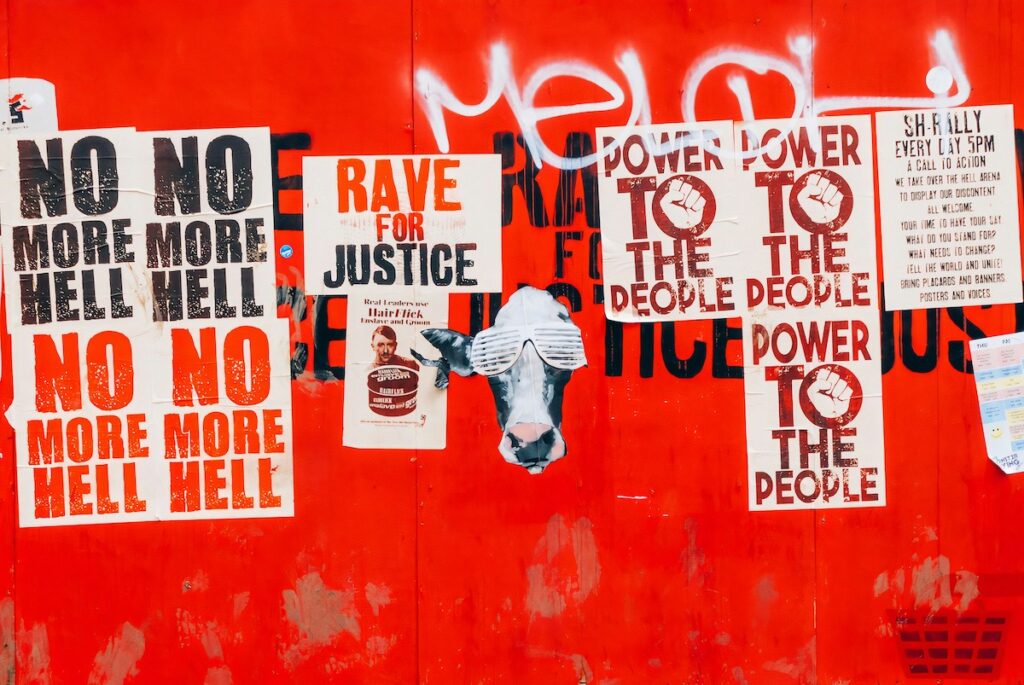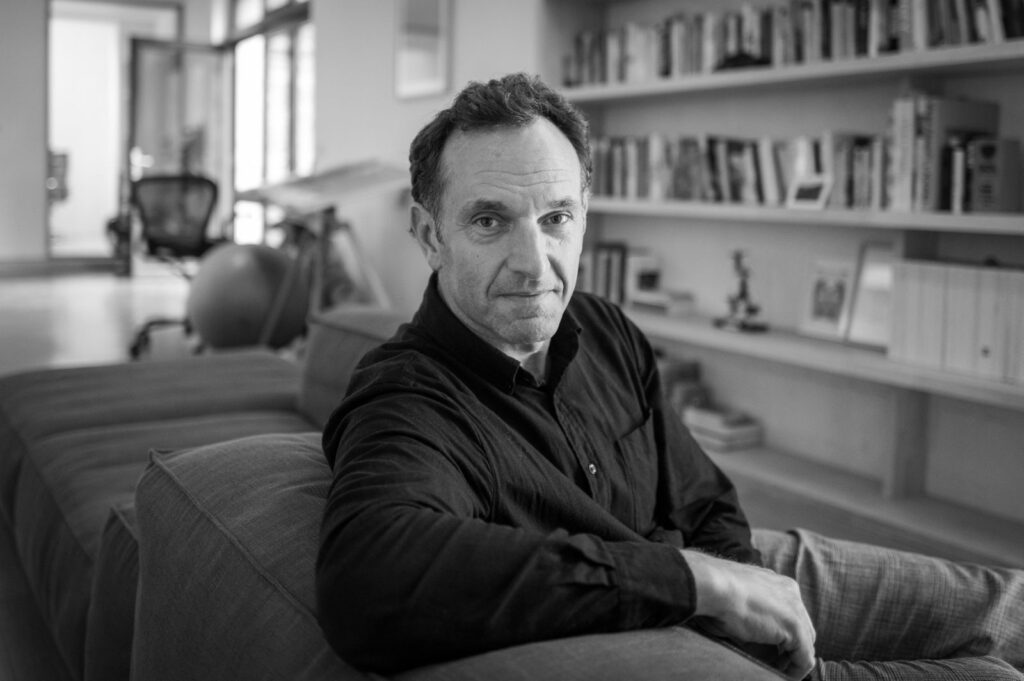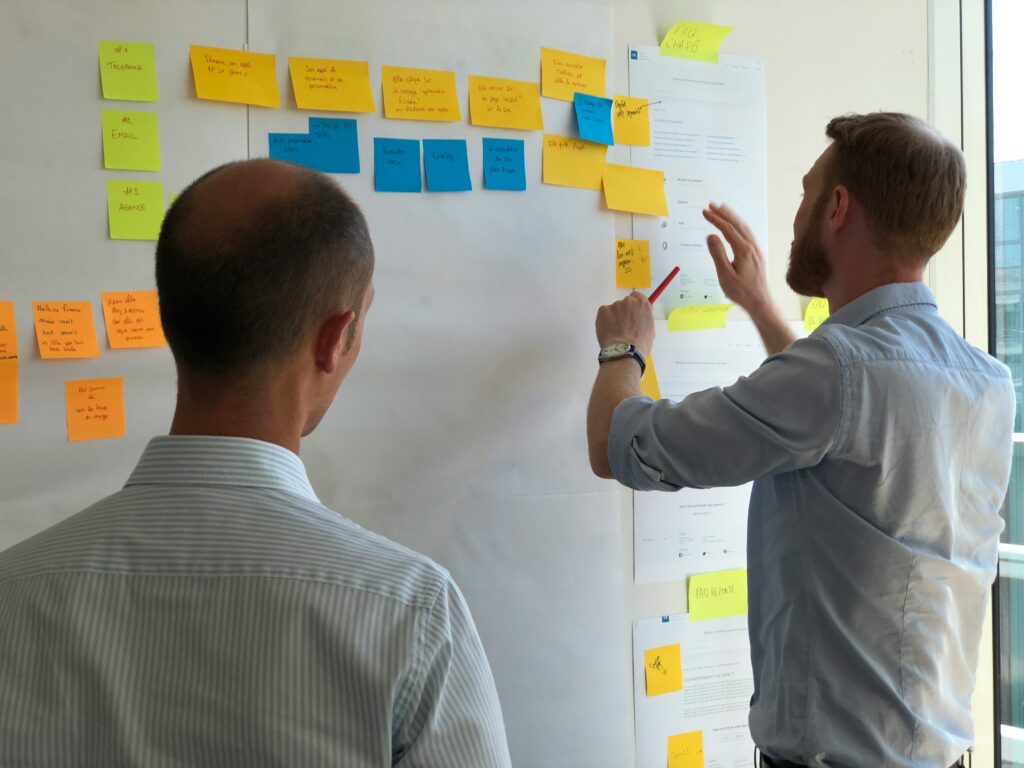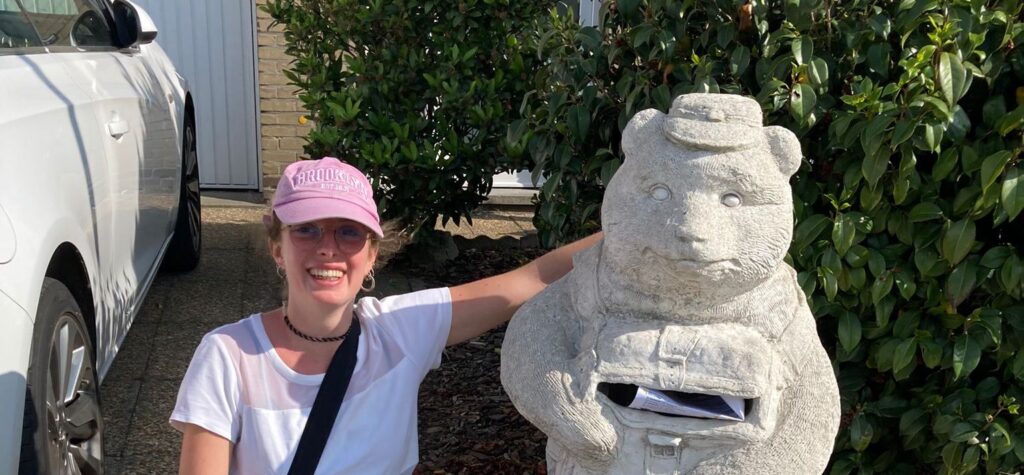A seminar to learn to make the EU innovative
What if, instead of being critical of the EU, we learned, collectively, to be creative? Through this course taught at the ULB (Free University of Brussels)’s Institute of European Studies, Master’s degree students learned how to read EU unfolding developments, and to look at those through a creative rather than critical eye, appreciatingx the possibility of fostering collective innovation, in order to develop better and timely solutions to address societal challenges.
In order to make EU institutions as a whole more creative, this 18-hour seminar focused on helping participants:
- Develop a clear understanding of what is political creativity and innovation and what it is not;
- Increase general knowledge of recent initiatives to renew democratic processes and the effectiveness of public policies;
- Understand to what extent the current EU institutional set-up fosters and limits collective innovation and what alternative institutional and governance approaches lead to greater innovation;
- Learn how to enhance one’s personal and a group’s creativity;
- Understand how to aim collective creative energies at pressing public policy issues in a non-partisan, non-ideological fashion.
From wow to how to now
The course syllabus was structured as follows.
Session 1 – Are we being creative at EU level?
- Presentation of course objectives and requirements
- What is creativity?
- What are the factors that shape creativity?
- How does one get from creativity to innovation?
Readings and background documents:
- Chapter 1, The 10 myths of creativity, David Burks
- Chapter 14, “Enhancing personal creativity”, in Creativity, the psychology of discovery and invention, Mihaly Csikszentmihalyi
- Introduction, Thinking fast and slow, Daniel Kahneman
- David Kelley, How to build your creative confidence, TED Talk
- Elizabeth Gilbert, Your elusive creative genius, TED Talk
Session 2 – Politics and policy-making: nothing but creativity?
- What is creativity and innovation in politics (in terms of processes, policies, elections)?
- Social innovation, new public management, democratic renewal… mapping concepts
- Why do we not see and cultivate innovation in politics? Identifying what stands in the way of society’s collective creativity
- Student presentation: What made Nelson Mandela a creative politician?
- Outside speaker: Stéphane Vincent, La 27e Région
Readings and background documents:
- Jennifer Mueller, Shimul Melanie, Jack Gonzalo, “The bias against creativity, why people desire but reject creative ideas”, in Psychological Science, November 2011
Session 3 – Utopias and dystopias: when dreams come true
- What function do utopias play?
- What were yesterday’s utopias, what are today’s?
- Can utopias be mobilised to foster better solutions today?
- Student presentation: Seeing the future of government through the eyes of science fiction
Readings and background documents:
- Review of Thomas More, Utopia
- Movie: L’An 01, Jacques Doillon
Session 4 – A challenged democracy: mapping new forms of collective action
- New forms of protest politics
- Civic techs: benefits and limits
- The public inventors’ dilemma: acting despite or with public authorities?
- Collective organising and creativity: unleashing people’s audacity
- Student presentation: What can creativity do to address terrorism?
- Outside speaker: Armel Le Coz, founder, Démocratie Ouverte (or Aurore Bimont, Escapademos)
Readings and background documents:
- Cass Sunstein, Why societies need dissent
- Jeremy Heimans, TED Talk: What new power looks like
- Pia Mancini, TED Talk: Democracy OS
Session 5 – Government 3.0: how public administrations are reinventing themselves and politics
- Why are co-creation and collective creativity far more than a new management approach?
- How is the civil service tackling the need for innovative policies?
- If the civil service gears itself towards innovation, what impact does it have on politicians’ approach to politics?
- Student presentation: Denmark’s MindLab: history and lessons
- Outside speaker: Kristina Persson, former Swedish Minister for strategic development (or OECD OSPI, or Laure de la Bretèche, Secrétariat Général à la Modernisation de l’Action Publique)
Readings and background documents:
- Roland Kupers, David Colander, Complexity and the art of public policy: Solving society’s problems from the bottom up (introduction and conclusion)
- Christian Bason: Leading Public Sector Innovation (introduction and conclusion)
Session 6 – Defining a problem accurately and mastering key dialogue processes
- The consequences of failing to define a problem accurately. The benefits of opening up the definition of a problem.
- From ethnography to design thinking: key methodologies to understand people’s “real” needs
- Dialogue, participation, consultation, deliberation: mapping concepts and techniques
- Student presentation: case study (e.g. Low Carb Lane, or the small town of Saillans…)
- Collective exercise with Zakia Elvang, Spark
Readings and background documents:
- La Documentation Française, Design thinking
- Online: Participedia.net
Session 7 – Brainstorming properly to create better options
- Do “ideation” techniques work?
- Which ones to use in which situations?
- Collective exercise with Anthony Deydier, Association CréaFrance (or Stéphanie Bacquere, nod-A)
Readings and background documents:
- The Creative Problem Solver’s Toolbox: A Complete Course in the Art of Creating Solutions to Problems of Any Kind, Richard Fobes
Session 8 – Democracy not democrazy: the key principles, benefits and limits of deliberative democracy
- Direct democracy vs. representation vs. people participation: what new mix?
- Deliberation: for what, when, how?
- Key deliberative democracy techniques: which types for which situations?
- Student presentation: Deliberative Polling, what can it do, what can it not do Outside speaker: Dimitri Lemaire, President, Particitiz
Readings and background documents:
- Chapter 2 of The deliberative democracy handbook: “What can we learn from the practice of deliberative democracy?”
Session 9 – Pilots and prototypes: how to scale up
- Scale “deep”, “out”, “up”, “across”, “together”, “by mixing”…
- How to design a successful prototype
- Student presentation: The Sustainable Food Lab: lessons
- Outside speaker: Miller Bojer, Reos Partners (or F.Jégou, Strategic Design Scenarios)
Readings and background documents:
- F.Jégou, Design for social innovation, Enabling replication of promising initiatives for sustainable living in Brussels and Paris
Session 10 – Let’s save the world: winning in elections thanks to creativity
Presentation of team projects: the class, divided into small groups (of 3-5 students, depending on size of the class), will be asked to apply what they have learnt to address practical challenges politicians face to win in elections thanks to better communications and manifestos.
Key preliminary readings
- Stephen Boucher, Petit manuel de créativité politique – Comment libérer l’audace collective
- Roald Dahl, On Democracy
- David Graeber, The Utopia of Rules: On technology, Stupidity and the secret joys of Bureaucracy
- Jonathan Rauch, Government’s End, Why Washington stopped working
- David P Stroh, Systems thinking for social change (intro)
- Rutger Bregman, Utopia for realists: and how we can get there
Services provided
- Documenting inspirational governance practices and public policies
- Research, writing, public speaking, moderating events
- Training and capacity building in Collective Intelligence, Creativity and Collaborative Leadership
Impacts
Having completed this course, participants have noted that they were better able to:
- Read critically EU news coverage;
- Know how to nurture their own and a group’s creative potential, having in particular mastered a range of core creativity principles and techniques;
- Know the specificities of a range of public dialogue and deliberative democracy methodologies and appreciate their underlying principles, potential and limitations;
- Appreciate the importance of accountability and transparency in fostering collective participation.




